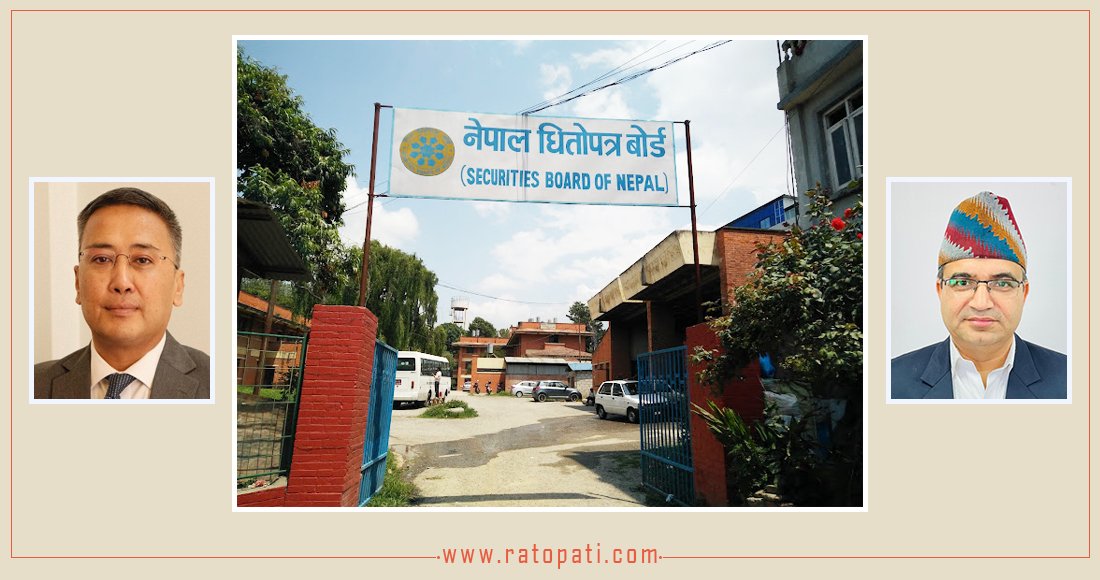New stock exchange license process moves forward without NEPSE restructuring

Kathmandu, February 10 — The process for granting a license for a new stock exchange has moved forward without restructuring the Nepal Stock Exchange (NEPSE).
A meeting of the Board of Directors of the Securities Board of Nepal (SEBON) held on Friday assigned a committee, led by Joint Secretary Binod Kumar Bhattarai, who represents the Ministry of Law, Justice, and Parliamentary Affairs, to prepare a work plan for studying the restructuring of the existing stock exchange and the licensing of new stock brokers.
According to SEBON spokesperson Niranjaya Ghimire, SEBON did not form a new committee but rather tasked an existing committee with studying the stock exchange issue and submitting a report. While the committee has been given this responsibility, there is no set timeline for completion. Ghimire mentioned that the committee can take its time and provide suggestions as needed.
Currently, applications for stock exchanges are under consideration for Himalayan Stock Exchange, Annapurna Stock Exchange, and National Stock Exchange. In October 2022, when Ramesh Hamal was the SEBON chairman, applications were opened for new stock exchanges with a 45-day deadline. However, after a court case was filed regarding the application, the process was halted as per the court's order.
Later, in March, 2023, after the court dismissed the writ, the application process was reopened for the remaining time. During that period, the three mentioned companies applied.
It is said that most of the investors in Himalayan Stock Exchange are founders of the current Himalayan Reinsurance Company, led by Deepak Bhatta. Other investors include Shankar Lal Agrawal, Shekhar Golchha, Pashupati Murarka, Bhawani Rana, Rajendra Khetan, Satishlal of Lucky Group, Vivek Duggar of Dugar Group, Saurabh Jyoti of Jyoti Group, Rohit Gupta, Ashish Shrestha, and Juni Gurung, among others.
Annapurna Stock Exchange is led by Rameshwar Thapa, the chairman of Annapurna Media Network, with other investors including Ganesh Kumar Shrestha, Surendra Raj Wagle, Mukti Bodh Neupane, Anil Sapkota, Prakash Kumar Shrestha, Shekhar Subedi, and Balaram Upreti.
National Stock Exchange is said to have a large proportion of investments from Non-Resident Nepalis (NRNs), led by Upendra Mahato. Other investors include Deepak Timilsina, Jiba Lamichhane, Badri K.C., Kul Acharya, and Gauri Joshi.
After the court order, former Chairman Hamal tried to move forward with the licensing process for stock exchanges. In response to the court's interim order, the government formed a committee led by former Deputy Governor of Nepal Rastra Bank and Director Chintamani Shiwakoti to explore the necessity of a new stock exchange.
Former Prime Minister Pushpa Kamal Dahal instructed SEBON to halt the process of granting new stock exchange licenses until the committee's report was submitted. He suspected that the process might involve policy corruption and attempts to grant licenses to certain business families. At the time, a coalition government consisting of the UML and Maoist parties was in power.
After the end of Ramesh Hamal's tenure as SEBON chairman on January 5, 2024, the race for a new chairman began, and it took nearly 11 months for SEBON to appoint a new leader. On November 25, 2024, Santosh Narayan Shrestha was appointed as the new chairman, and the process for granting new stock exchange licenses resumed.
Shiwakoti's committee had submitted its report in April, 2024. The committee recommended granting a license to only one stock exchange for market competition but suggested restructuring the Nepal Stock Exchange before proceeding with the license.
Following the committee's recommendations, the new committee, led by Binod Kumar Bhattarai, has been tasked with submitting a report regarding the restructuring of NEPSE and the new licensing process.
Committee not free from controversy
This decision to assign the responsibility to the committee has not been free from controversy. It is reported that Tulsi Ghimire, the Executive Director representing Nepal Rastra Bank, and Gokarn Raj Awasthi, representing the Nepal Chamber of Commerce, were not present during the decision-making process.
It is also said that current board chairman Santosh Narayan Shrestha is closely associated with businessman Deepak Bhatta, leading to speculation that Himalayan Stock Exchange, which has Bhatta's investments, is likely to receive the license. This issue could potentially lead to investigations by the Commission for the Investigation of Abuse of Authority (CIAA) or legal disputes, and for this reason, the two were absent from the board meeting.
The newly formed committee has been tasked with studying the reports and preparing a work plan, but it has not been given the responsibility to evaluate the existing applications. This committee was formed to study the issue of whether to continue with the old applications or open a new round of applications. Without proper study, proceeding with the evaluation of old applications could lead to legal complications, hence the formation of the committee.
This committee will have limited decision-making power and will primarily provide recommendations regarding the restructuring model of NEPSE. It will also suggest whether to cancel old applications and open new ones or continue with the old applications.
However, sources suggest that it is likely that the committee will recommend continuing with the evaluation of the old applications. If the committee recommends this, a technical committee will be formed to evaluate the applications, and the company with the highest score will be granted the new stock exchange license.
Since the Shiwakoti-led committee recommended that NEPSE be restructured before granting a new license, the board is compelled to proceed with both processes simultaneously. Otherwise, this could lead to further legal complications.
Current structural status of NEPSE
Currently, the government holds 58.66% of the shares in NEPSE. Nepal Rastra Bank holds 9.55%, the Employees Provident Fund has 10%, the Rastriya Banijya Bank holds 11.23%, and Laxmi and Prabhu Banks each hold 5%. The remaining 0.60% is held by other shareholders.
Due to this ownership structure, it has been considered difficult for NEPSE to compete with private sector stock exchanges. Therefore, there is a need to restructure not only the investment structure but also the leadership selection process within the stock exchange.
NEPSE officials, however, have stated that while they are ready to restructure NEPSE, they believe a new stock exchange is unnecessary. Despite NEPSE being financially strong based on its sources and revenue, it is believed that restructuring is necessary due to government interference and decision-making processes.
In the last fiscal year, NEPSE made a profit of 1.1 billion rupees, and it currently holds 1 billion rupees in paid-up capital. This capital is more than 100% of its total capital, indicating that once listed companies are added, NEPSE will have continuous income, making the race for a new stock exchange license even more competitive.









Leave Comment